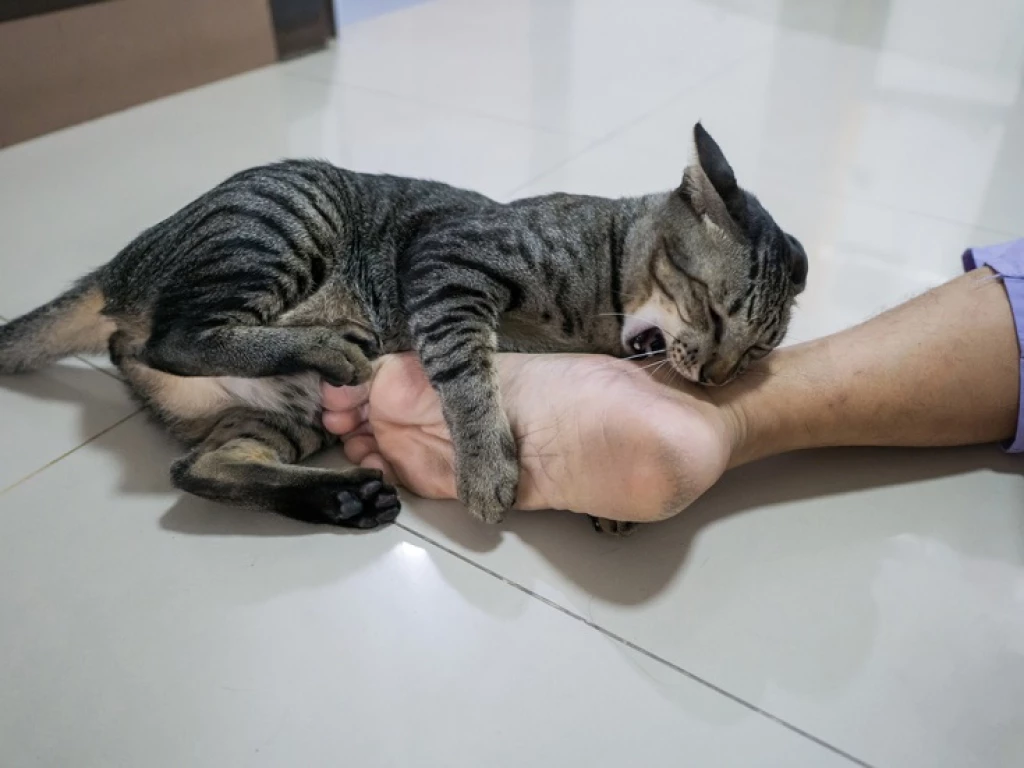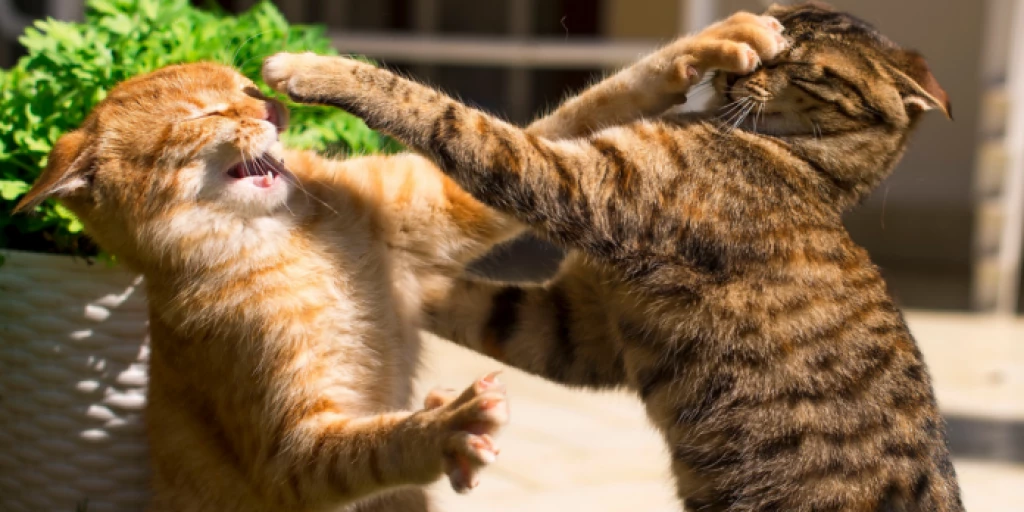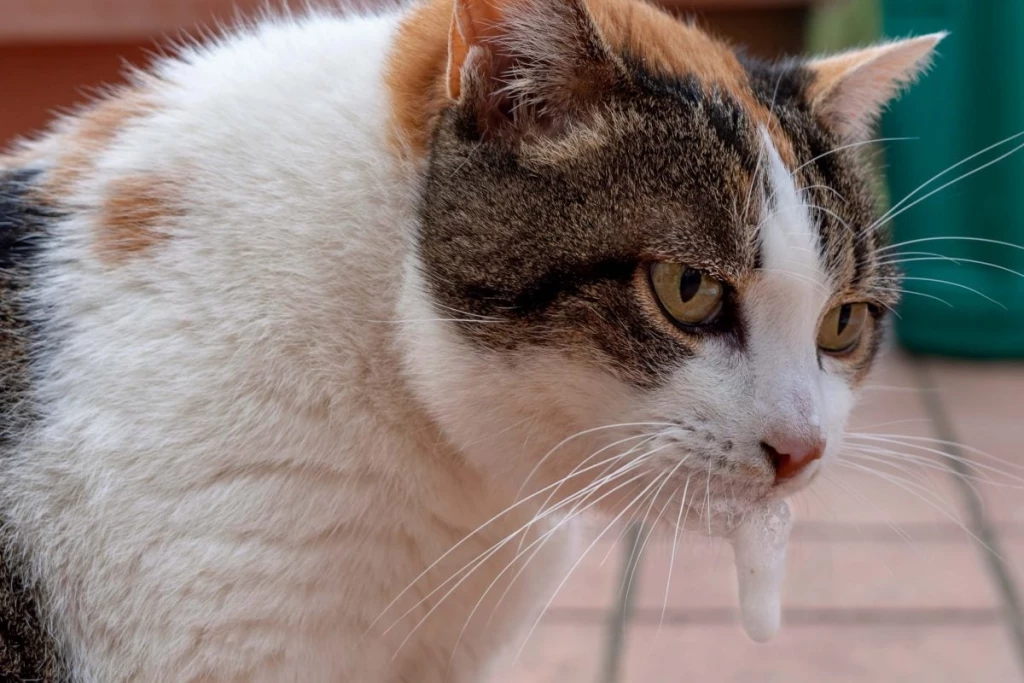If you have ever been startled by your cat pouncing on your feet or biting your toes, you might wonder what is going on in their furry little head. Why do cats attack feet so often? And why do cats like feet in particular? In this blog post, we will explore some of the possible reasons behind this common feline behavior and how to deal with it.
Cats attack feet for various reasons, ranging from playful to aggressive. It all comes down to their natural instincts as hunters and their social interactions with their mothers and littermates. Sometimes, they see your feet as prey and want to practice their hunting skills. Other times, they want to show you affection or get your attention. And sometimes, they are just bored or frustrated and need an outlet for their energy.
In this blog post, we will explore some of the most common reasons why cats attack feet and how to deal with them. We will also give you some tips on how to prevent or reduce this behavior and keep your feet safe from your feline friend.
Why Cats Attack Feet and How to Deal With Them
Let's explore some of the most common reasons why cats attack feet and how to deal with them. We will also provide some examples and tips to help you understand your cat's behavior and prevent or reduce it.
A Sign of Affection
One of the possible reasons why your cat attacks your feet is that they are showing you affection. Cats learn to bite and nip from their mothers and littermates as a way of showing love and bonding. These little love bites are not harmful and can be tolerated if you don't mind them.
For example, your cat may gently nibble on your toes when you are relaxing on the couch or in bed. They may also purr or meow while doing so, indicating that they are happy and content. This is their way of saying "I love you" and "You are my family".
However, if your cat bites or scratches your feet too hard or too often, you may want to discourage them from doing so. This can happen if your cat gets overexcited or doesn't know how to control their bite force. You can do this by saying "ouch" or "no" in a firm but calm voice and withdrawing your attention from them. You can also redirect them to a toy or another activity that they enjoy.
Playing
Another possible reason why your cat attacks your feet is that they are playing. Cats are playful creatures with an instinct to hunt, and moving human feet make for great hunting practice. Play sessions are important for their development and mental stimulation, as they help them exercise their muscles, sharpen their senses, and release their energy.
For example, your cat may pounce on your feet when you are walking around the house or moving them under the covers. They may also chase, swat, or bite your feet when you wiggle your toes or wear fuzzy slippers or socks. This is their way of saying "Let's play" and "You are my playmate".
However, if your cat plays too rough or too aggressively with your feet, you may want to redirect them to more appropriate toys or playmates. This can happen if your cat lacks socialization or stimulation, or if they have a high prey drive. You can do this by providing them with plenty of toys that mimic prey movements, such as feathers, mice, or balls. You can also play with them regularly and engage them in interactive games that stimulate their hunting instincts, such as laser pointers, fishing poles, or wand toys.
Intimidation
Another possible reason why your cat attacks your feet is that they are intimidated. Cats can sometimes feel threatened or scared by your feet, especially if they are large, noisy, or unfamiliar. Cats may attack your feet as a way of defending themselves or asserting dominance.
For example, your cat may attack your feet when you wear shoes or boots that make loud noises or have strange smells. They may also attack your feet when you approach them too quickly or invade their personal space. This is their way of saying "Back off" and "You are not the boss of me".
However, if your cat shows signs of fear or aggression when attacking your feet, such as hissing, growling, or flattening their ears, you should avoid provoking them and give them some space. You can also try to make them feel more comfortable and secure by providing them with hiding places, scratching posts, and calming scents.
Attention
Another possible reason why your cat attacks your feet is that they want your attention. Cats can sometimes crave your attention and use your feet as a way of getting it. Cats may attack your feet when you are busy, sleeping, or ignoring them.
For example, your cat may attack your feet when you are working on your laptop or watching TV. They may also attack your feet when you are sleeping or napping. This is their way of saying "Pay attention to me" and "You are my human".
However, if your cat attacks your feet when they want your attention, you should not reward them with attention but rather ignore them or give them a time-out. You can also try to anticipate their needs and give them attention before they demand it.
Boredom or Frustration
Another possible reason why your cat attacks your feet is that they are bored or frustrated. Cats can sometimes get bored or frustrated with their environment or routine and use your feet as a way of venting their emotions. Cats may attack your feet when they lack stimulation, enrichment, or exercise.
For example, your cat may attack your feet when they have nothing else to do or play with. They may also attack your feet when they are stressed or unhappy with something in their surroundings, such as a change in schedule, a new pet, or a loud noise. This is their way of saying “I’m bored” or “I’m frustrated”.
How Can I Tell if My Cat Is Biting My Feet Out of Affection or Aggression?
One way to tell if your cat is biting your feet out of affection or aggression is to look at their body language and vocalizations. If your cat is biting your feet gently and purring or meowing softly, they are probably showing you love and affection.
If your cat is biting your feet hard and hissing or growling loudly, they are probably feeling threatened or angry. You can also look at their eyes, ears, and tail for clues. If your cat has relaxed eyes, ears, and tail, they are likely feeling friendly and playful. If your cat has dilated eyes, flattened ears, and puffed-up tail, they are likely feeling fearful or aggressive.
How Can I Train My Cat to Stop Attacking My Feet?
One way to train your cat to stop attacking your feet is to use positive reinforcement and redirection. Positive reinforcement means rewarding your cat for good behavior and ignoring or discouraging bad behavior. Redirection means giving your cat something else to do or play with instead of your feet.
For example, you can praise and pet your cat when they leave your feet alone and give them a treat or a toy. You can also say "ouch" or "no" and stop playing with them when they bite or scratch your feet. You can also give them a toy or another activity that they enjoy.
How Can I Provide My Cat With More Stimulation and Enrichment to Prevent Boredom or Frustration?
One way to provide your cat with more stimulation and enrichment to prevent boredom or frustration is to make their environment more interesting and challenging. You can do this by adding more toys, scratching posts, hiding places, climbing structures, and windows to their space.
You can also rotate their toys regularly and introduce new ones occasionally to keep them curious and engaged. You can also play with them more often and vary the games and toys you use. You can also try some puzzle toys or food dispensers that make them work for their food and stimulate their brain.
How Can I Protect My Feet From My Cat’s Attacks?
One way to protect your feet from your cat's attacks is to cover them up or make them less appealing to your cat. You can do this by wearing socks, slippers, or shoes that don't look like prey or make noise.
You can also avoid moving your feet too much when your cat is around, especially under the covers or in the dark. If you do move them, make sure to make some noise or announce yourself so your cat knows it's you and not a potential prey.
How Can I Understand My Cat’s Body Language and Signals When They Attack My Feet?
One way to understand your cat's body language and signals when they attack your feet is to observe them closely and learn their patterns and preferences. You can do this by noticing when, where, how, and why they attack your feet and what they do before, during, and after the attack.
You can also notice how they react to your responses and what makes them stop or continue the attack. By doing this, you can learn what triggers their attacks, what motivates them, what calms them down, and what annoys them. You can also learn how to communicate with them better and avoid misunderstandings.
Conclusion
Cats attack feet for various reasons that have to do with their instincts, emotions, and needs. Sometimes, they do it out of love or playfulness; other times, they do it out of fear or anger; and sometimes, they do it out of boredom or frustration. Understanding why your cat attacks your feet can help you deal with it better and prevent it from becoming a problem.
Here are some actionable tips on how to prevent or reduce this behavior and keep your feet safe from your cat:
- Provide your cat with plenty of toys, especially ones that mimic prey movements, such as feathers, mice, or balls.
- Play with your cat regularly and engage them in interactive games that stimulate their hunting instincts, such as laser pointers, fishing poles, or wand toys.
- Avoid moving your feet too much when your cat is around, especially under the covers or in the dark. If you do move them, make sure to make some noise or announce yourself so your cat knows it's you and not a potential prey.
- If your cat bites or scratches your feet gently, you can tolerate it if you don't mind it. But if they bite or scratch too hard or too often, you can discourage them by saying "ouch" or "no" and withdrawing your attention. You can also redirect them to a toy or another activity.
- If your cat shows signs of fear or aggression when attacking your feet, such as hissing, growling, or flattening their ears, you should avoid provoking them and give them some space. You can also try to make them feel more comfortable and secure by providing them with hiding places, scratching posts, and calming scents.
- If your cat attacks your feet when they want your attention, you should not reward them with attention but rather ignore them or give them a time-out. You can also try to anticipate their needs and give them attention before they demand it.
- If your cat attacks your feet when they are bored or frustrated, you should provide them with more stimulation, enrichment, and exercise. You can also try to vary their routine and environment to keep them interested and challenged.
By following these tips, you can help your cat channel their energy and instincts in more appropriate ways and enjoy a more harmonious relationship with them. Remember that cats attack feet not because they are mean or evil but because they are curious and playful creatures who need our love and understanding.






